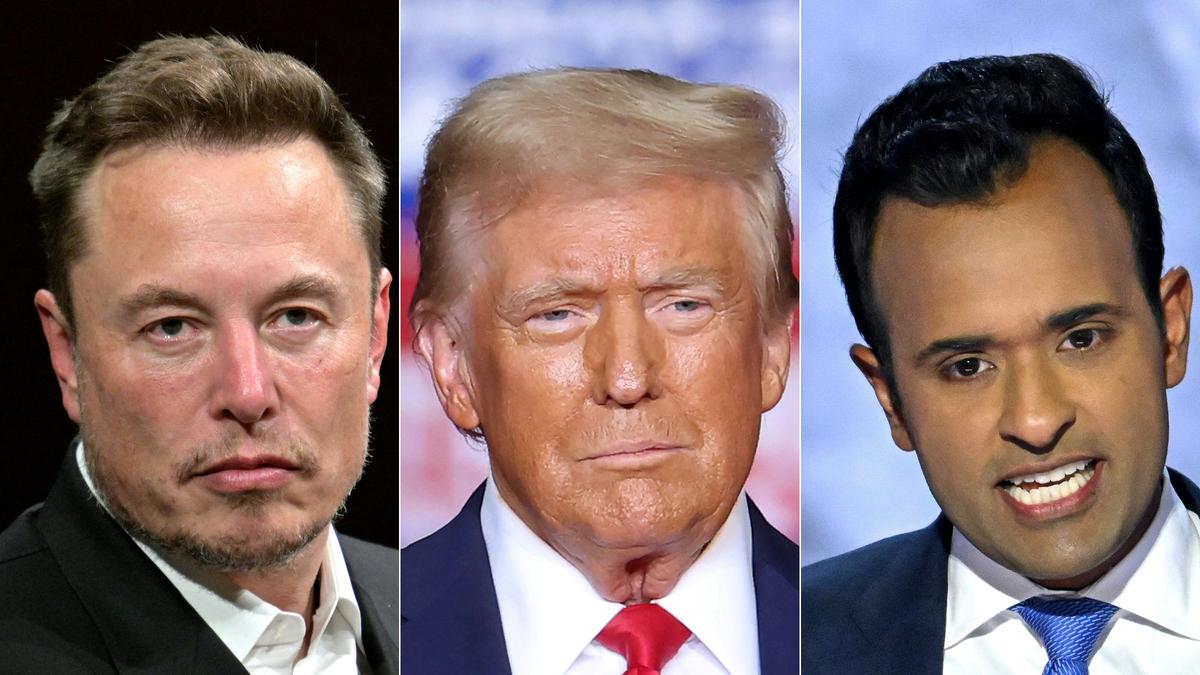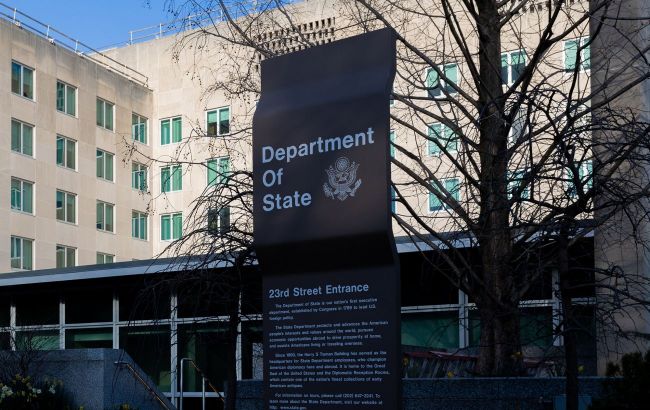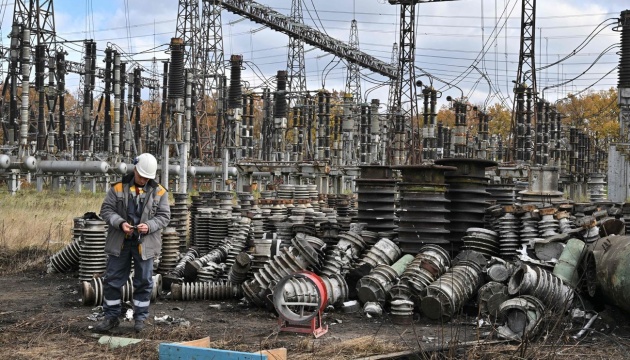World
Trump will be president again and the Republicans control the Senate. The House hangs in the balance | CBC News

THE LATEST:
- Kamala Harris delivers concession speech on Wednesday afternoon.
- Wisconsin projection puts Trump over the top in presidential race.
- Trump also wins battlegrounds Georgia, Michigan, North Carolina, Pennsylvania.
- Republicans reclaim Senate, with House control still uncertain.
- Abortion rights activists hailed ballot measure wins in some, but not all, states.
World leaders began reaching out to U.S. president-elect Donald Trump on Wednesday, after his electoral victory became assured and as his Democratic rival Kamala Harris formally conceded the race.
Results from Tuesday’s national election showed early Wednesday that the 78-year-old Trump would return to the Oval Office after four years out of power — making him the second-ever U.S. presidential candidate to win non-consecutive terms. He’ll also be the first convicted felon to hold the nation’s highest office.
In a concession speech on Wednesday afternoon, Harris, the current U.S. vice-president, spoke to the nation about her campaign falling short of victory for the Democrats.
“The outcome of this election is not what we wanted, not we fought for, not what we voted for,” Harris said, when speaking before a crowd at Howard University in Washington.
“But hear me when I say … the light of America’s promise will always burn bright, as long as we never give up and as long as we keep fighting.”
While pledging to support a peaceful transfer of power to the incoming president-elect, Harris underlined that while she acknowledged losing at the polls to Trump, she did not concede “the fight that fuelled this campaign.”
Defeated Democratic presidential nominee Kamala Harris said in her concession speech Wednesday that although many people may feel the U.S. is entering into a dark time, they should be encouraged to keep working in the face of setbacks.
U.S. President Joe Biden, meanwhile, reached out Wednesday to congratulate Trump and to invite the president-elect to the White House to discuss the transition. Steven Cheung, the communications director for the president-elect, said Trump “very much appreciated” Biden’s congratulatory call.
The leaders of Britain, Canada and France offered Trump congratulations, as well, as did those of India, Turkey, Saudi Arabia and Israel. Chinese President Xi Jinping called Trump on Wednesday, CNN reported, while Australian Prime Minister Anthony Albanese and Japanese Prime Minister Shigeru Ishiba both reported speaking to him on Thursday.
Ukrainian President Volodymyr Zelenskyy, whose 2019 phone call with Trump was the centrepiece of the past-and-also-future president’s first impeachment on Capitol Hill, also paid tribute to his incoming U.S. counterpart.
“I appreciate President Trump’s commitment to the ‘peace through strength’ approach in global affairs,” Zelenskyy said on X. “This is exactly the principle that can practically bring just peace in Ukraine closer.”
Skipped election night results? CBC’s Ashley Fraser explains what you missed.
Trump’s victory was sealed when swing state Wisconsin and its 10 electoral college votes were called for him by the U.S. networks and The Associated Press just after 5:30 a.m. ET on Wednesday, putting him over the necessary 270 electoral college votes needed to win the presidency.
Trump took Wisconsin for the second time in three elections after narrowly losing it to Biden four years ago. He did the same in Michigan, with its 16 electoral college votes, in an election call that came down just after midday on Wednesday.
Lawrence Douglas, professor of law at Amherst College in Massachusetts, says that while Donald Trump won’t be able to pardon himself on state charges against him, he won’t likely serve time and, as president, he’ll be able to make sure federal cases against him don’t go to trial.
Trump also scored wins in battleground states Georgia, North Carolina and Pennsylvania. The presidential outcome in Arizona and Nevada has yet to be determined.
“It is now clear that we’ve achieved the most incredible political thing. Look what happened. Isn’t this crazy?” Trump told cheering supporters early Wednesday in West Palm Beach, Fla., after the Pennsylvania result. “I want to thank the American people for the extraordinary honour of being elected your 47th president.”
This year’s election campaign saw dramatic developments, including Trump surviving an assassination attempt in July and Biden exiting the race days later, opening the door for Harris to take his place on the Democratic ticket. While concerns about Biden’s age and capacity to handle the job were paramount, Trump will be the oldest president upon inauguration on Jan. 21, 2025.
Trump will return to office with Republicans having control of the Senate to boost his agenda. Control of the House of Representatives was still in doubt on Wednesday evening.
Donald Trump’s running mate, J.D. Vance, celebrated their election night success after several battleground states were called for Trump, promising to lead ‘the greatest economic comeback in American history.’
In a result with worldwide reverberations, enough American voters overlooked Trump’s turbulent first term in power — he was twice impeached by the Democratic-led House, and his supporters stormed the U.S. Capitol on Jan. 6, 2021, after he promoted false claims of widespread voting fraud.
Trump faced criminal indictments related to that post-election period, as well as a real estate fraud case in New York that led to a conviction earlier this year. Sentencing is due to take place in that case later this month.

Trump’s improbable comeback carries implications at home and abroad, from the wars in Ukraine and in the Middle East, to the bargaining tables where America’s allies face tough conversations on defence spending and trade.
Canada risks being hit harder than most from Trump’s threat of a 10 per cent tariff on all imported products.
Front Burner24:58America embraces a second Trump presidency
For months, Democratic presidential candidate Kamala Harris rallied voters with a message: “We’re not going back.”
But as the election was finally called in the early hours of Wednesday morning, it’s now clear that America does in fact want to go back.
Back to Donald Trump.
Keith Boag, longtime CBC Washington correspondent, joins us to break down how this happened, and what a second Trump presidency could hold.
For transcripts of Front Burner, please visit: https://www.cbc.ca/radio/frontburner/transcripts [https://www.cbc.ca/radio/frontburner/transcripts]
Inflation, border concerns for voters surveyed
Trump ultimately won over voters with grand promises to improve the economy, block the flow of immigrants on the southern border and with his siren call to “make America great again.” He also appealed to religious voters in both parties by seizing on the Democrats’ support for the transgender community.
After Trump’s declaration of victory, the American dollar surged and U.S. stock futures hit record highs as investors bet on lower taxes and higher interest rates.
On foreign policy, Trump has pledged to fundamentally alter the U.S. relationship with NATO and to resolve the Ukraine war. Trump has expressed concern with the amount of U.S. aid to Ukraine, though in many cases that money supports American companies and jobs involved in arms and defence production.
Overall, though, domestic concerns weighed heavily for U.S. voters. About half of Trump voters said inflation was the biggest issue factoring into their election decisions. About as many said the same for the situation at the U.S.-Mexico border, according to AP VoteCast, a survey of more than 115,000 voters.
At the same time, Black and Latino voters appeared slightly less likely to support Harris than they were to back Biden four years ago, according to AP VoteCast. About eight in 10 Black voters backed Harris, down from the roughly nine in 10 who backed Biden. More than half of Hispanic voters supported Harris, but that was down slightly from the roughly six in 10 who backed Biden in 2020.
Exit polls of voters also illustrated a significant gender gap in several states, with Harris enjoying a double-digit margin among woman voters and Trump enjoying large margins from male voters.

While Harris was able to tap into the Biden war chest, her campaign of less than four months was more comparable in duration to candidates in a Western parliamentary democracy than the U.S., where candidates often announce their intention to run 18 months out. Trump, a well-known quantity, announced his third presidential bid in November 2022.
Harris was seen as the consensus winner in a debate with Trump, but she struggled to define when asked by reporters how her presidency would differ from the Biden administration in which she’s served. While Biden passed more significant legislation in his term than Trump, voters were gloomy about the economy — and the effects of the America Jobs Plan, Inflation Reduction Act and Chips and Science Act will take years to assess.
On the economy, Trump said he’d impose sweeping tariffs on imported goods and on specific companies and countries. He pledged to end taxes on tips and overtime, to make emergency generators tax-deductible in states hit by natural disasters, to lower corporate tax rates and to open federal lands to foreign companies and housing. He also vowed to undo much of Biden’s climate change work.














